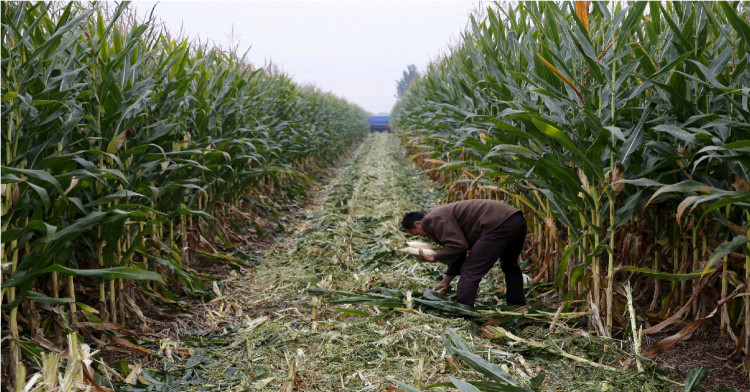China and its neighboring Asian nations are alarmed by the spread of an invasive insect pest called "Fall Armyworm" that threatens their crops. The insect was a long-time American pest that made its way around the globe.
The armyworms were first reported in the Americas in 2016 before it infested the crops, including maize, sorghum, and millet, in Africa. Reports said that it is now spreading through Yemen, South Asia to Thailand and China.
The Ministry of Agriculture and Rural Affairs' (MOA) major pest prevention center warned on Tuesday that there is a "visible increase" in the pace of the invasion. It also warned farmers to "grab crops from the mouth of the pest".
According to experts from the United Nations' Food and Agricultural Organization (UN FAO), the incursions of this alien species threaten to upend the balance between costs and returns for farmers. UN FAO experts said that the insects are growing in numbers because of the lack of natural predators in their new habitat. The armyworm's natural enemies like predators, parasites, and pathogens including bacteria or viruses control its growing numbers.
The presence of the insects in China was first discovered in the southwestern border province of Yunan in January. Officials believe that the insects passed from Southeast Asia into China. Around 720 square kilometers of farmland in 13 provincial-level regions suffered from invasive pests.
Uraporn Nounart, a specialist on farm pests at Thailand they only found the presence of the insect in the country late last year. The insects were found in the Kanchanaburi province in the northwest of Bankok in January.
According to experts, the pests can cause damage at all stages of a corn crop and the damage is at its worst when the larvae turn the corn's cobs into mush. The insects pose a great threat to the Asian nations since most of them depend on agriculture for exports and as a source of food for consumers, for their poultry and for their livestock.
Reports of the insects are mostly in southern China but it is expected to spread as corn grows and as the temperature heats up during summer. The MOA unit warned that the pest might root in China and reproduce. The Chinese government established an emergency response to control the spread of the insects.
Farmers in Thailand used any means to eradicate the pests. Some use drones to spray pesticides in their corn fields. Experts are also collecting eggs and worms to monitor the growth of the insects.





